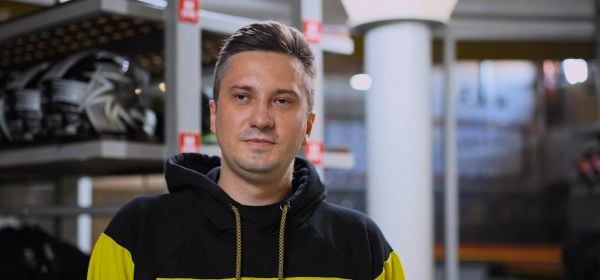In the high-stakes arena of professional Dota 2, where the pursuit of victory often demands relentless dedication and a grueling schedule, even the most seasoned veterans can find their limits. Such is the recent revelation from Alexey “Solo” Berezin, a respected captain and strategic mind within the competitive scene, who has officially announced his departure from Team Yandex. The primary reason? A candid admission of severe emotional burnout – a condition that serves as a quiet yet potent adversary for many esports athletes.
The Unseen Toll of the Competitive Grind
Solo`s explanation for stepping down offers a stark glimpse into a persistent challenge within competitive gaming. He revealed that the demanding cadence of tournaments, bootcamps, and incessant training sessions had inflicted an unsustainable toll on his mental and emotional well-being. “I successfully handled all my duties,” Solo stated, “but I burned out severely. I realized that if I spent a few more months in this mode, I would be completely depleted. So, I decided I needed to chill out.”
“I successfully handled all my duties, but I burned out severely. I realized that if I spent a few more months in this mode, I would be completely depleted. So, I decided I needed to chill out.”
— Alexey “Solo” Berezin
This honest confession underscores the often-overlooked reality behind the glittering prize pools and fervent fan bases: the relentless grind can erode even the most robust resolve. The sentiment found resonance in a conversation with fellow Dota 2 stalwart Roman “RAMZES666” Kushnarev. When RAMZES666 questioned if Solo “couldn`t handle the pace,” Solo`s response reaffirmed his commitment to his responsibilities while emphasizing the profound personal cost. This dialogue highlights a common understanding among professional players regarding the immense pressure and the fine line between peak performance and complete exhaustion. It is, perhaps, an unspoken truth that the pursuit of esports glory frequently demands a personal sacrifice few outside the industry truly comprehend.
A Brief, Yet Impactful, Tenure
Solo`s tenure with Team Yandex, though relatively brief, commencing in June of this year, was not without its highlights. He successfully captained the squad through rigorous qualifiers, securing a coveted spot at the Riyadh Masters 2025 – a significant achievement in the highly competitive Dota 2 circuit. However, the team`s ultimate ambition to qualify for The International 2025, Dota 2`s pinnacle event, unfortunately fell short, adding another layer of competitive intensity to an already strenuous season.
His departure, officially announced on August 14, serves as a poignant reminder that even qualifying for top-tier events does not guarantee sustainable well-being. The road to esports glory is meticulously paved with countless hours of strategizing, practicing, and competing, often requiring isolation from conventional life rhythms. It`s a professional path where the boundary between unwavering dedication and detrimental excess can become perilously blurred.
Esports and Player Welfare: An Evolving Conversation
Solo`s situation is not an isolated incident but rather a recurring narrative in the rapidly evolving world of esports. Stories of player burnout, mental health struggles, and early retirements due to exhaustion are becoming increasingly prevalent. The industry, despite its exponential growth, continues to grapple with establishing comprehensive support systems for its athletes, often leaving players to navigate these intense pressures independently.
While the allure of professional gaming—the fame, the fortune, the thrill of competition—is undeniable, it comes with a less glamorous underside. The constant travel, the grueling practice schedules stretching late into the night, the omnipresent public scrutiny of every decision, and the perpetual pressure to perform collectively create an environment ripe for mental fatigue. For an athlete like Solo, who has dedicated years to mastering his craft, reaching a point of “needing to chill out” isn`t a sign of weakness, but a critical recognition of a body and mind pushed beyond their sustainable limits.
This incident, much like others before it, compels a continued conversation about player welfare. As esports matures, the focus must extend beyond mere prize pools and viewership numbers to encompass the physical and mental health of the individuals driving its success. Perhaps a more structured, almost “technical style” approach to managing player careers, incorporating mandatory breaks and robust mental health support, might become as crucial as game strategy itself.
The Path Forward for Solo and the Industry
For Solo, this hiatus is likely a necessary period of recuperation, a chance to recharge before potentially considering a return to the competitive fray. For Team Yandex, it necessitates adapting to a significant roster change and identifying a new leader to guide them forward in the dynamic Dota 2 landscape.
More broadly, Solo`s experience adds another vital data point to the growing body of evidence highlighting systemic challenges in professional esports. It underscores the urgent need for organizations, tournament organizers, and the community at large to foster environments that prioritize sustainable careers over short-term gains. After all, the true spirit of competition thrives not just on sheer skill, but on the enduring well-being of its champions.

